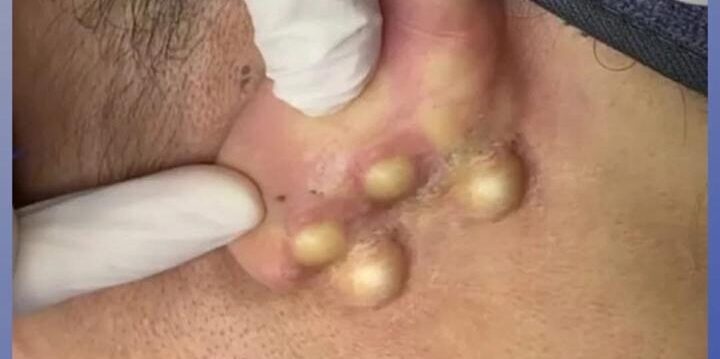When to See a Dermatologist for Acne: Recognizing Severe, Persistent, and Late-Onset Acne
Acne is a common skin condition that affects people of all ages, but not all breakouts are the same. While mild to moderate acne can often be managed with over-the-counter treatments and proper skincare, more severe or persistent forms may require professional medical attention. Here are two key situations in which seeing a dermatologist is highly recommended:
1. Severe Acne: Cysts, Nodules, and Deep, Painful Breakouts
Severe acne goes beyond regular pimples and blackheads. Individuals experiencing deep, painful, and inflamed breakouts may have nodular or cystic acne, which can cause long-term skin damage and scarring.
- Cystic acne occurs when oil and dead skin cells clog pores deep beneath the skin, leading to large, pus-filled, and often painful cysts.
- Nodular acne involves hard, inflamed lumps under the skin that do not contain pus but are equally painful and persistent.
Both forms of acne are difficult to treat with drugstore products and often require prescription-strength medications, such as oral antibiotics, isotretinoin (Accutane), or hormonal therapy. Without proper treatment, severe acne can lead to permanent scarring and emotional distress, making early intervention crucial.
2. Late-Onset or Persistent Acne in Adults
Acne is often associated with teenagers, but many adults experience late-onset or persistent acne well into their 20s, 30s, and beyond.
- Late-onset acne refers to acne that develops for the first time in adulthood, even in individuals who never had acne as teenagers. This can be triggered by hormonal fluctuations, stress, medications, or underlying health conditions.
- Persistent acne is when acne that started in adolescence continues into adulthood, despite the expectation that it would improve over time.
For adult acne sufferers, the cause may be linked to hormonal imbalances (such as polycystic ovary syndrome – PCOS), diet, lifestyle factors, or underlying skin conditions. Dermatologists can help identify the root cause and recommend targeted treatments, such as hormonal therapy (e.g., birth control pills or spironolactone), topical retinoids, or professional procedures like chemical peels and laser therapy.
Why Seeking Professional Help Matters
Severe, persistent, or ad.u.l.t-onset acne can take a toll on both physical and emotional well-being. Consulting a dermatologist ensures that individuals receive a personalized treatment plan tailored to their specific skin type and condition. Early intervention can prevent long-term damage, minimize scarring, and restore confidence. If acne is significantly affecting daily life, self-esteem, or leaving lasting marks, seeking professional care is the best step toward clearer, healthier skin.
Video Here:

